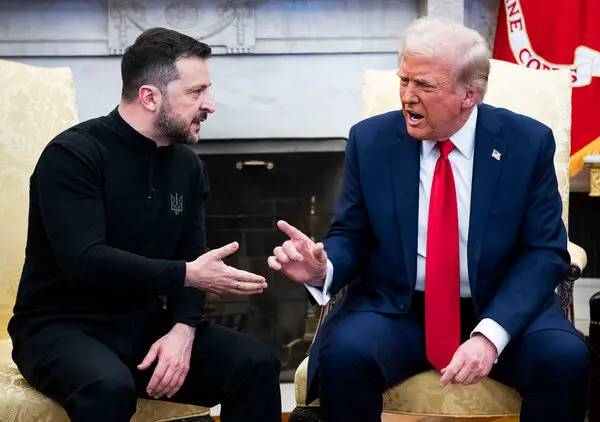Trump Signals Reluctance to Arm Ukraine After Meeting Zelensky, Prefers Focus on Peace Talks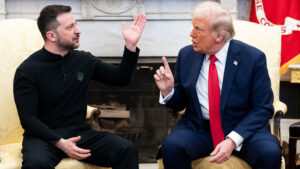
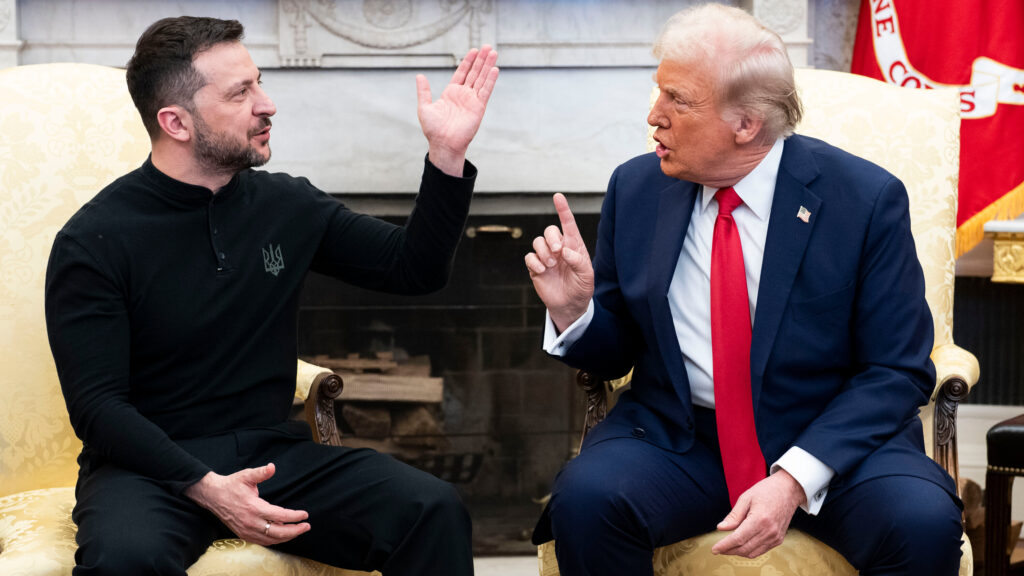
Meeting with Zelenskyy Takes Backseat After Surprise Putin Call
President Donald Trump expressed hesitation in supplying long-range Tomahawk cruise missiles to Ukraine during a White House meeting with President Volodymyr Zelenskyy on Friday, signaling a stronger interest in brokering a ceasefire with Russia.
The shift in tone followed a surprise phone call earlier that day between Trump and Russian President Vladimir Putin. Trump, now seemingly prioritizing diplomacy, is preparing for a potential in-person summit with Putin in Hungary in the coming weeks.
Trump Urges Both Sides to Halt Fighting
Following over two hours of discussions with Zelenskyy, Trump called on both sides to immediately stop the war and return home.
“You stop at the battle line, and both sides should go home, go to their families,” Trump told reporters. “Stop the killing. And that should be it.”
He reportedly conveyed this same message to both Zelenskyy and Putin.
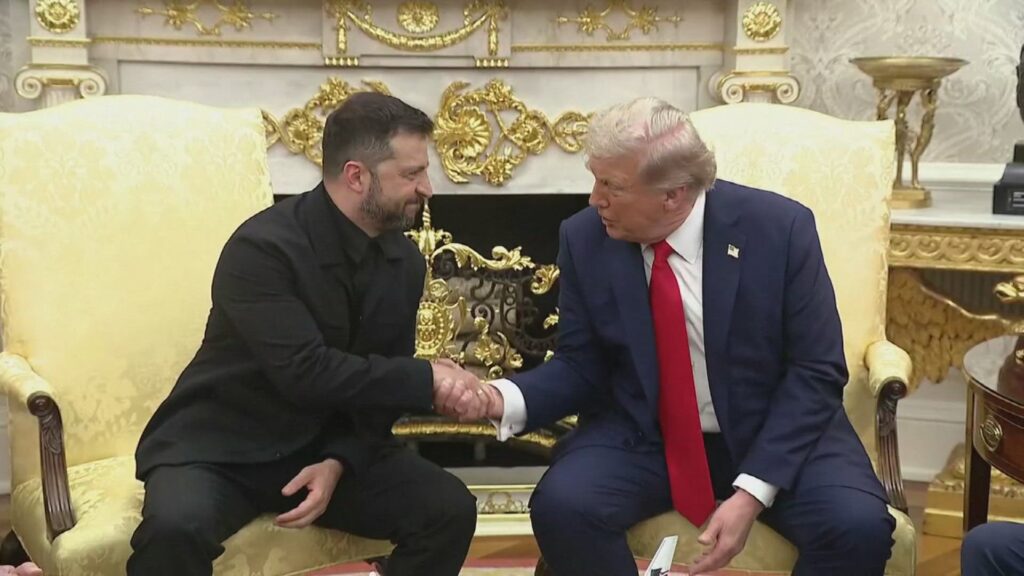
Zelenskyy Pushes for Missiles, Trump Hesitates
Zelenskyy was candid about Ukraine’s urgent need for long-range weapons, telling Trump that while the country has thousands of drones ready for combat, it lacks American Tomahawk missiles.
“We don’t have Tomahawks, that’s why we need Tomahawks,” Zelenskyy said.
Trump’s response downplayed the urgency, saying:
“We’d much rather have them not need Tomahawks.”
Later, Trump emphasized that the US should retain its weapons:
“We want Tomahawks, also. We don’t want to be giving away things that we need to protect our country.”
Putin Warns Against Arming Ukraine
Trump’s change in posture came shortly after a call with Putin, who warned that supplying Kyiv with Tomahawks would significantly harm US-Russia relations.
During the call, Trump said he jokingly asked Putin:
“Would you mind if I gave a couple of thousand Tomahawks to your opposition?”
According to Russian aide Yuri Ushakov, Putin initiated the call and strongly advised against the arms transfer, arguing that it would not affect the battlefield but would deteriorate diplomatic ties.
Shifting US Support and Planned Budapest Summit
Trump’s stance on military aid to Ukraine has fluctuated throughout his second term, often influenced by talks with either Putin or NATO allies. The meeting with Zelenskyy now appears overshadowed by the announcement of a potential Trump-Putin summit in Budapest.
Trump said the logistics of the summit are still being arranged, and he may brief Zelenskyy afterward. However, he noted:
“There is a lot of bad blood.”
There is speculation that Zelenskyy may not participate directly, with Trump suggesting indirect talks might be more effective:
“They don’t get along too well, those two. So we may do something where we’re separate. Separate but equal.”
Hungary’s Role in Hosting Putin Despite ICC Warrant
Hungarian Prime Minister Viktor Orbán, a close ally of both Trump and Putin, has offered to host the peace summit in Budapest. Hungary’s Foreign Minister, Péter Szijjártó, confirmed the country would welcome Putin without needing external approval, despite Hungary’s ICC obligations.
“We are a sovereign country here. We will receive [Putin] with respect, host him and provide the conditions for him to negotiate,” Szijjártó said.
While travel logistics remain unclear due to EU sanctions and Putin’s ICC arrest warrant, Kremlin spokesperson Dmitry Peskov confirmed discussions with Orbán and said the summit may occur within a few weeks.
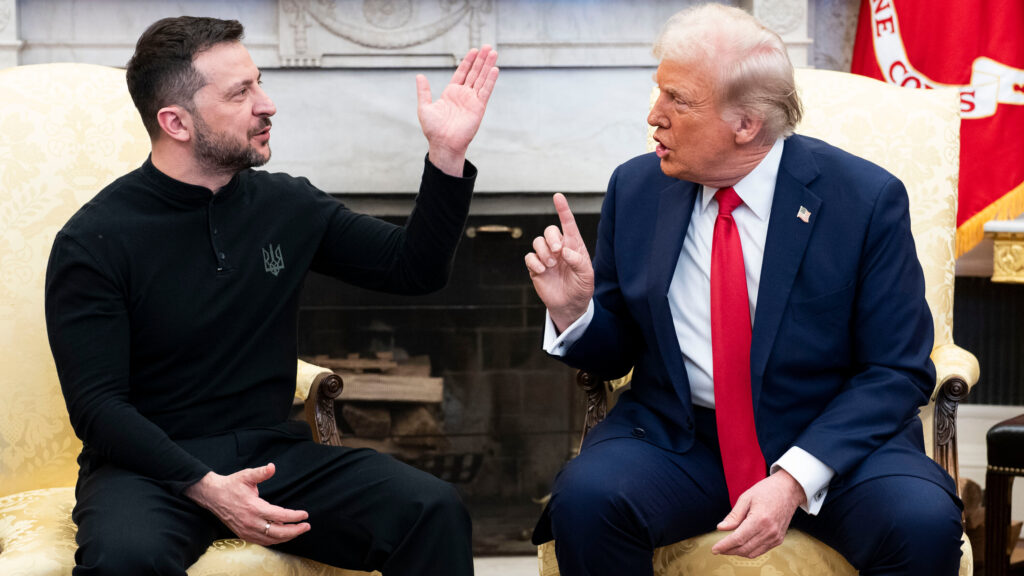
Mixed Reactions from Kyiv
Zelenskyy refrained from publicly commenting on the Trump-Putin call, but his request for advanced US weaponry now appears less likely to succeed ahead of the summit. Some Ukrainian officials suggested the call reflected Putin’s concern over the possibility of US military support.
“Even the discussion about Tomahawk missiles had already forced Putin back into dialogue with America,” said Ukrainian Foreign Minister Andrii Sybiha on X.
Still, Zelenskyy acknowledged the reality:
“The US does not want escalation. I’m realistic,” he told reporters, tempering expectations about receiving the missiles.
US Leadership Shows Division on Strategy
While Trump remains optimistic about a potential peace deal, US Vice President JD Vance offered a more measured assessment. Speaking on Newsmax, Vance stated:
“The Russians and the Ukrainians are just not at the point where they can make a deal. A settlement remains possible but will require a lot more work.”
He added that there was a “misalignment of expectations,” with Moscow believing its military campaign is going better than it actually is.
Looking Ahead
The Trump-Putin summit in Budapest is set to become a critical turning point in efforts to end the war in Ukraine. However, with Zelenskyy sidelined and the US pulling back from additional arms support, the outcome remains uncertain.
Former UK defence attaché John Foreman remarked:
“Zelenskyy must be pulling his hair out. Today’s meeting with Trump is now completely overshadowed and overtaken by the Budapest meeting.”
Whether the Budapest summit will result in a breakthrough or deepen divisions remains to be seen.
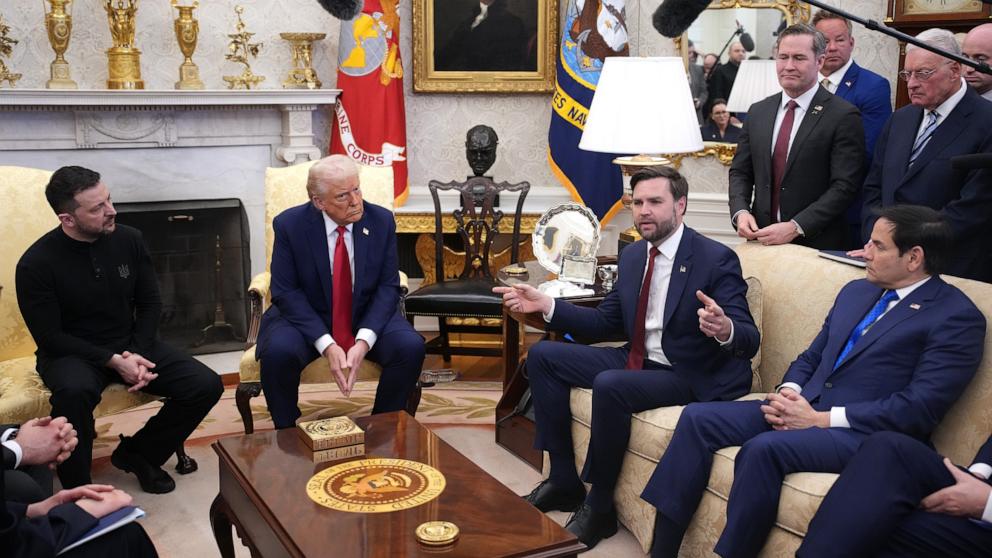
🟡 Support Independent Journalism
Why Your Support Matters
The Guardian relies on reader funding to produce independent, in-depth journalism like this. Here’s why your support is essential:
- Editorial Freedom
No billionaire owner. No political pressure. Our stories are guided solely by the facts and what we believe matters most. - No Clickbait
We prioritize meaningful, high-quality reporting—not click-driven content. - Free for Everyone
Thanks to reader contributions, the Guardian remains accessible to people around the world, including those in countries where press freedom is at risk.
👉 Only 2.4% of our regular readers currently fund our work. If you’re in Pakistan—or anywhere—and value independent reporting, please consider supporting us today.
Monthly contributions have the most impact and unlock great benefits—including removing these messages.
Support here the author: https://threadscroll.com
Thank you.
Comment Below.
